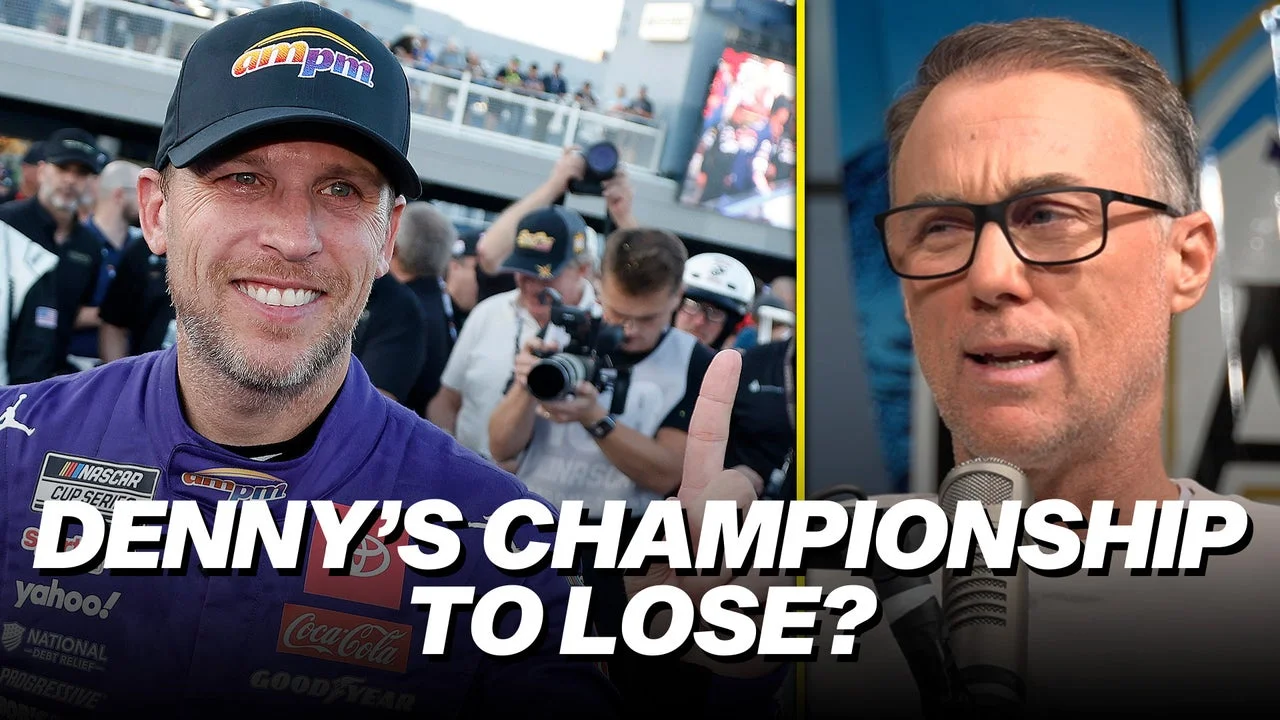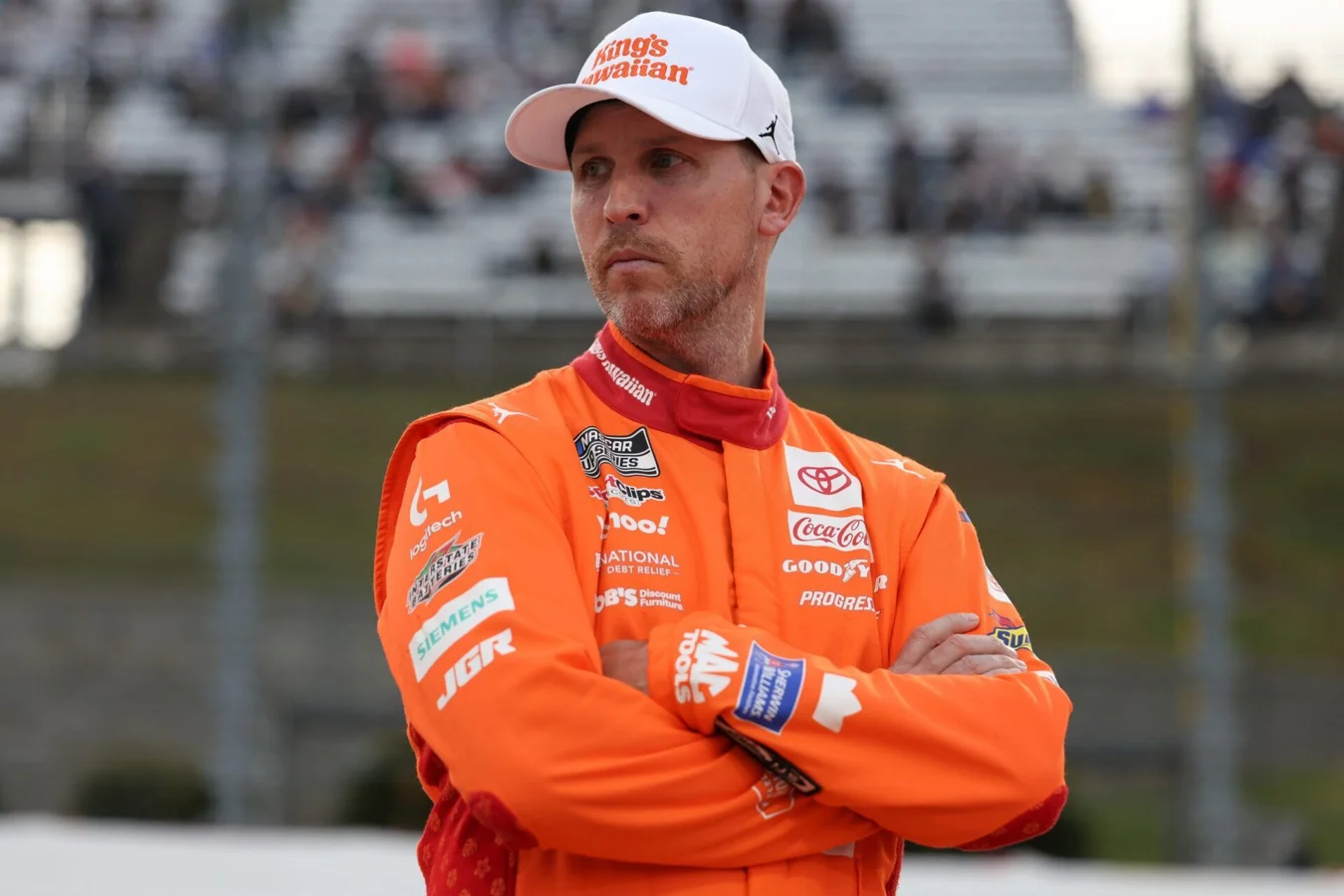Denny Hamlin‘s presence among the top contenders for the National Motorsports Press Association’s Most Popular Driver Award in 2025 has unexpectedly transformed the usual narrative, with the Denny Hamlin Most Popular Driver conversation energizing NASCAR fans and insiders. As Hamlin navigates a polarizing reputation, his challenge against perennial favorite Chase Elliott offers a compelling look at shifting fan loyalties and evolving perceptions on and off the track.
NASCAR’s Most Popular Driver Award Sees Historic Contenders and Surprises
Since its inception in 1949, the National Motorsports Press Association’s Most Popular Driver Award has been a touchstone of NASCAR’s relationship with its audience. The honor, once chosen by a panel and now determined by fan voting, highlights those who resonate deepest with the community. Curtis Turner earned the inaugural honor, but legends like Richard Petty and Bill Elliott helped define the award’s prestige. Bill Elliott’s record-setting 16 wins set a high bar, while his son Chase Elliott has sustained that family legacy with a remarkable seven consecutive wins from 2018 to 2024, becoming NASCAR royalty in the eyes of many fans.
The road to 2025, however, marks a break in tradition. While regulars like Ross Chastain, Ryan Blaney, and Kyle Larson remain strong contenders, the spotlight now shines on Denny Hamlin—driver of the No. 11 Joe Gibbs Racing toyota/”>Toyota and part-owner of 23XI Racing. Unlike previous winners such as Dale Earnhardt Jr. and Chase Elliott, who have been widely celebrated, Hamlin has developed a public persona more akin to NASCAR’s antagonist. His polarizing statements and unapologetic attitude have drawn both loyal supporters and outspoken critics.

After a Cup Series victory at WWT Raceway in September 2025, Hamlin faced overwhelming boos from spectators but embraced his reputation, stating,
“Y’all can boo me. But, you can get on the bandwagon or you can get run over by it,”
before urging them to “Bring it!” — Denny Hamlin. That moment underscored the friction between his on-track performance and fan response, which has quickly become a central theme this season.
Hamlin’s rise to the Most Popular Driver shortlist has baffled some observers, including insiders such as The Athletic’s Jeff Gluck. “Denny????” — Jeff Gluck, Reporter. Gluck’s incredulity reflects a wider sentiment among those who’re used to seeing the award favor more traditionally admired drivers. Even so, Hamlin’s ever-growing presence cannot be ignored, proving that fan sentiment is as complex as ever.
Culture Shift: From Beloved Icons to the Rise of the Anti-Hero
Chase Elliott and Dale Earnhardt Jr. have built their reputations by exemplifying the respectful, approachable hero archetype. Both have dominated recent decades, yet the latest nominees paint a more nuanced picture of NASCAR’s shifting fanbase. Kyle Larson, NASCAR’s 2021 champion, is praised for his versatility across dirt tracks, IndyCar, and stock car racing, earning broad respect as possibly the best in motorsports nationwide. Ryan Blaney, known for his welcoming personality and champion status in 2023, retains the support of a younger, diverse cohort of fans. Meanwhile, Ross Chastain, nicknamed the “Watermelon Man,” draws a mix of admiration and debate for his aggressive tactics and bold persona.
Yet it is Denny Hamlin who stands at the epicenter of change. Never previously recognized as the Most Popular Driver, Hamlin’s nomination this year is a testament to the evolving identity of NASCAR’s audience. His “anti-hero” appeal resonates with fans who crave candor and unpredictability. This cultural shift is not merely about likability, but about who fans feel represents the changing face of motorsports as a whole.
Debate Intensifies as Fan Reactions Illustrate Divided Loyalties
The announcement of Hamlin among the top five Most Popular Driver contenders has sparked spirited debate. Some fans reject the nomination outright, expressing confusion about his polarizing image:
“Why’s Denny Hamlin on here, this is supposed to be MOST popular, not LEAST popular.”
— Unattributed Fan. For many, Hamlin’s “villain arc,” highlighted in moments such as his 2023 playoff win at Bristol Motor Speedway, continues to define him. In that moment, facing a hostile crowd, Hamlin declared,
“Hey, I beat your favorite driver… all of them,”
— Denny Hamlin, addressing his critics and referencing crowd favorites like Chase Elliott and Kyle Larson.
On the opposite side, Hamlin’s directness and willingness to critique NASCAR leadership and decisions has earned admiration within a growing segment of the fanbase:
“Oh man we need to send NASCAR a message and give this to Denny this year. PLEASE.”
— Unattributed Fan. These voices champion Hamlin not just for his performance, but for his outspoken persona, especially on his podcast, “Actions Detrimental.” There, Hamlin has been candid in his assessments, frequently challenging NASCAR’s business choices and comparing the unpopular Next Gen car to previous controversial models, echoing widespread concerns over racing quality.
For some supporters, Hamlin’s continued competitiveness and old-school durability strike a chord:
“I think some fans like myself are starting to appreciate how good he still is. He’s one of the last guys left of the older generation and I feel like he wants the right things for the sport. He’s become a lot easier to like and root for.”
— Unattributed Fan.
The split is further highlighted online, where one observer remarks,
“This really shows the difference between Twitter and actual at track experience lol.”
— Unattributed Fan. While Hamlin’s candor attracts a following in digital circles and through his media appearances, reactions at the racetrack remain mixed, underlining just how unique the anti-hero dynamic has become in a sport historically defined by more conventional heroes.
Changing the Game: The Role of Media and Personality in Modern NASCAR Fandom
Hamlin’s scrapbook of fan interaction now includes not just racing accolades but popularity driven by media presence and personality. The “Actions Detrimental” podcast stands out, not only for offering fans an inside view but for converting some originally indifferent or even contrary listeners. As one listener put it,
“Not a Race driver Denny fan. But big Actions Detrimental fan. I like Blaney more than Chase. And I don’t like Ford at all. I wouldn’t have put Ross in the top 5. That surprised me. Larson is the best for motorsports nationwide. Let’s break the Elliott streak and get a 2nd.”
— Unattributed Fan.
This sentiment reveals a modern trend: affinity for drivers isn’t limited to their on-track exploits, but extends into their unvarnished commentary and media relationships. The popularity of Hamlin’s podcast—holding a 4.8-star rating on Apple Podcasts—demonstrates that engaging with fans beyond race day is essential for building a diverse fanbase in today’s digital age.
As Hamlin continues to walk the line between admired competitor and divisive figure, his presence among the top drivers for the Most Popular Driver award signals how NASCAR has become more multifaceted and dynamic. Fans rally behind both the traditional “good guys” like Elliott and Blaney, and those like Hamlin who push boundaries and offer a new vision for NASCAR.
The Road Ahead: How Hamlin’s Ascent Could Redefine NASCAR’s Popularity Contest
Hamlin’s sudden ascension into the top tier of Most Popular Driver candidates isn’t just a fleeting moment; it marks a potential turning point for the sport. The increasing overlap between digital communities, on-track passion, and media personalities is redrawing the battle lines of fandom. A win by Hamlin would upend a longstanding tradition of honoring the universally beloved, injecting NASCAR with new storylines and invigorating debates heading into the next season.
Whether Chase Elliott’s established, loyal supporters can withstand this energized, often younger cohort backing Hamlin and other dynamic personalities like Ross Chastain remains to be seen. What’s clear is that NASCAR is witnessing a shake-up, not just among drivers but within the fan community itself—a testament to the enduring excitement and unpredictability at the heart of American motorsport.
Denny???? https://t.co/tN4TGDzr50
— Jeff Gluck (@jeff_gluck) October 29, 2025
